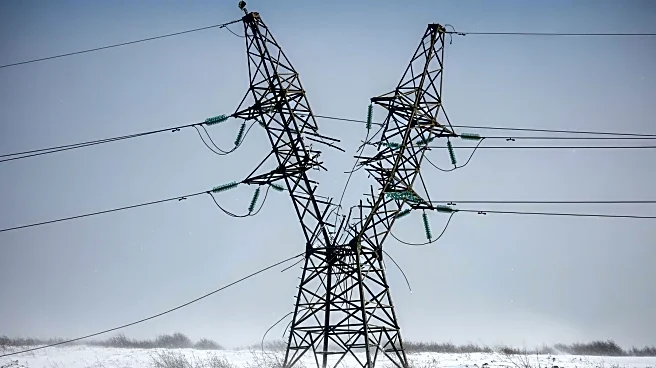What's Happening?
Ukrainian military strikes have caused significant disruptions in the Russian cities of Voronezh and Belgorod, affecting power and heating systems. The strikes are part of ongoing hostilities between Russia and Ukraine,
with both nations targeting each other's energy infrastructure. Voronezh experienced temporary blackouts and heating cuts due to drone strikes, while Belgorod faced serious damage to its power systems following missile attacks. The Ukrainian Foreign Minister accused Russia of endangering nuclear safety by targeting substations that power nuclear plants. The conflict has seen frequent exchanges of attacks on critical infrastructure, with both sides aiming to weaken each other's capabilities.
Why It's Important?
The disruption of power and heating in Russian cities underscores the escalating nature of the conflict between Russia and Ukraine, with significant implications for civilian populations. The targeting of energy infrastructure highlights the strategic importance of such facilities in modern warfare and raises concerns about the humanitarian impact on affected regions. The situation also poses risks to nuclear safety, with potential consequences for broader European security. The ongoing conflict continues to strain diplomatic relations and complicate efforts for peace negotiations, affecting regional stability and international relations.
What's Next?
The conflict is likely to persist, with continued exchanges of strikes on infrastructure. Diplomatic efforts to resolve the situation remain stalled, and the international community may face increased pressure to intervene or mediate. The focus on energy infrastructure could lead to heightened security measures and international scrutiny of nuclear safety protocols. The situation may also prompt discussions on energy security and the need for resilient infrastructure in conflict zones.
Beyond the Headlines
The conflict raises ethical questions about the targeting of civilian infrastructure in warfare and the long-term impact on affected populations. The situation may influence global energy policies and the development of strategies to protect critical infrastructure from military threats. Additionally, the conflict could affect public opinion on international intervention and the role of global organizations in conflict resolution.








